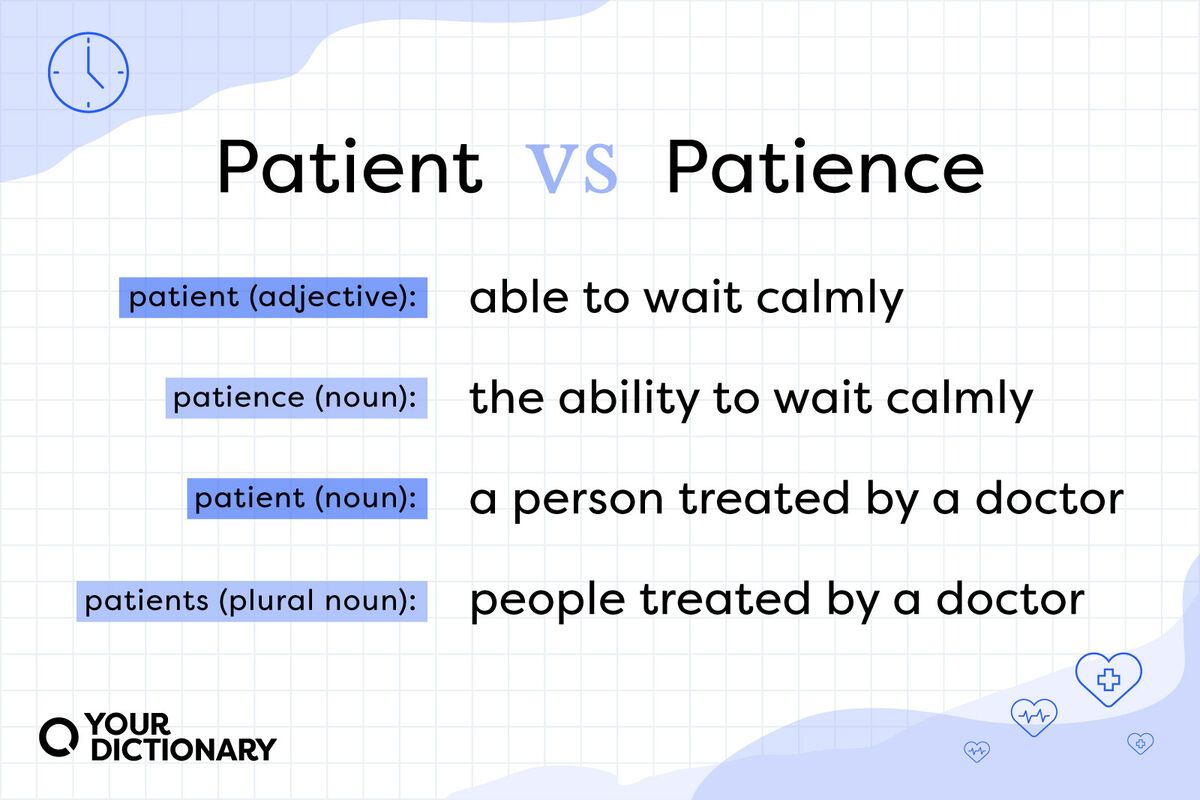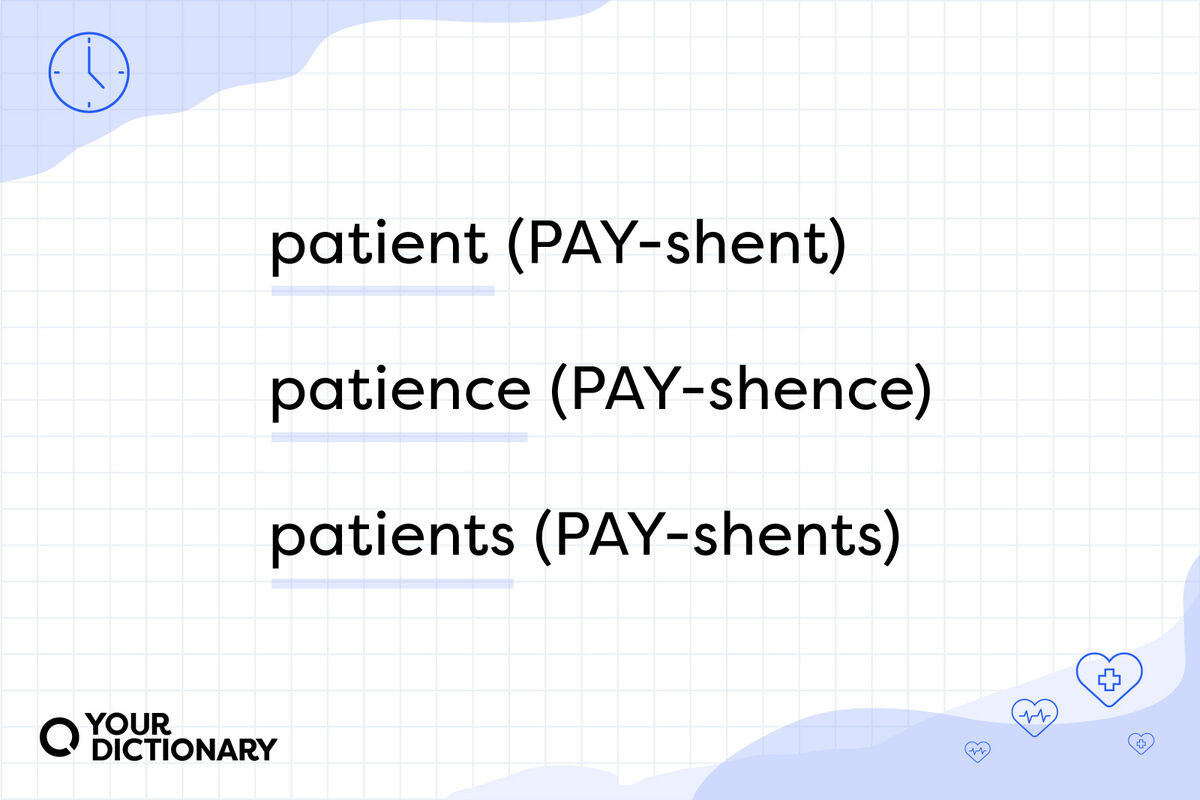
When waiting for your appointment at the doctor's office, you must have patience because your doctor has patients. And let’s not get started on those patient patients’ patience. Confused yet? That’s okay. Even though patient, patience, and patients sound alike, they have different functions in a sentence depending on their part of speech. Just be patient (or is it have patience?) and you’ll know why.
Use “Patient” as an Adjective To Mean “Waiting Calmly”
Patient as an adjective means “able to wait calmly.” The same goes for its adverb form, patiently.
- The patient dog waited for his owner outside the house.
- We were patient while our mom was on the phone.
- Martin and Sarah waited patiently for the mail to arrive.
Use “Patient” as a Noun To Mean “Someone Seen By a Doctor”
Your eyes aren’t fooling you — patient and patient are homonyms with the same spelling and pronunciation. But when you use patient as a noun, you’re talking about someone who is seen by a doctor. For example:
- Have you spoken to the flu patient in room two?
- Dr. Cole has one more patient to see today.
- Please bring this medication to the elderly patient upstairs.
Use “Patience” as a Noun To Mean “Waiting Calmly”
Patience is the noun form of patient (and a proper noun when it’s a person’s name). It has the same meaning as patient, but functions as a noun:
- Teaching toddlers to wait their turn can help them learn patience.
- With hard work and patience, we’ll finish this project.
- You need a lot of patience when you work in customer service.
Use “Patients” To Describe More Than One Patient
Patients and patience also sound alike, making them homophones. But patients is simply the plural form of patient:
- Ten different patients with the same symptoms were admitted to the hospital.
- Nurses treat their patients with kindness and dignity.
- Patients with more immediate needs are typically seen by a doctor first.
The Origin of “Patient,” “Patience,” and “Patients”
Both patient and patience are real words that are grammatically correct in different contexts (same goes for patients). They come from the Latin patientem, which has two related meanings:
-
“to wait without complaint”
-
“to suffer or bear”
These definitions seem particularly apt if you’ve ever spent more than 30 minutes waiting to see a doctor for a sore throat (or if you, like Ambrose Bierce in The Devil’s Dictionary, define patience as “a minor form of despair, disguised as a virtue”).

What About “Impatience” vs. “Inpatients”?
Another grammatical confusion lies between impatience and inpatients — two words that sound similar, but have very different meanings.
- impatience - unable to wait calmly
- inpatients - patients who stay in the hospital during treatment
The trick between these words is to know your prefixes. Im- means “not,” as in “not patient.” In- means “inside,” as in “inside the hospital.”
Should You Say “Be Patient” or “Have Patience”?
If you’re trying to encourage someone to stop complaining while they wait, you can either say “Be patient” or “Have patience.” But which one should you use?
“Be patient” is an imperative command that is appropriate for right now, in the moment. It essentially means “Stop complaining and be quiet.”
“Have patience” is more of a guiding principle with a gentler tone. It can refer to a moment of complaining right now, or it can be a general value that a person should practice every day. It just depends on what tone you’re trying to strike (and how loudly that person is complaining).
Other Words That Change to “-ence” in Noun Form
Patient and patience are only a few of the many English words that end in -ent as adjectives and -ence as nouns. You’ll find the same spelling rule in many word pairs, such as:
- confident (changes to confidence)
- consequent (changes to consequence)
- different (changes to difference)
- present (changes to presence)
- reverent (changes to reverence)
- silent (changes to silence)